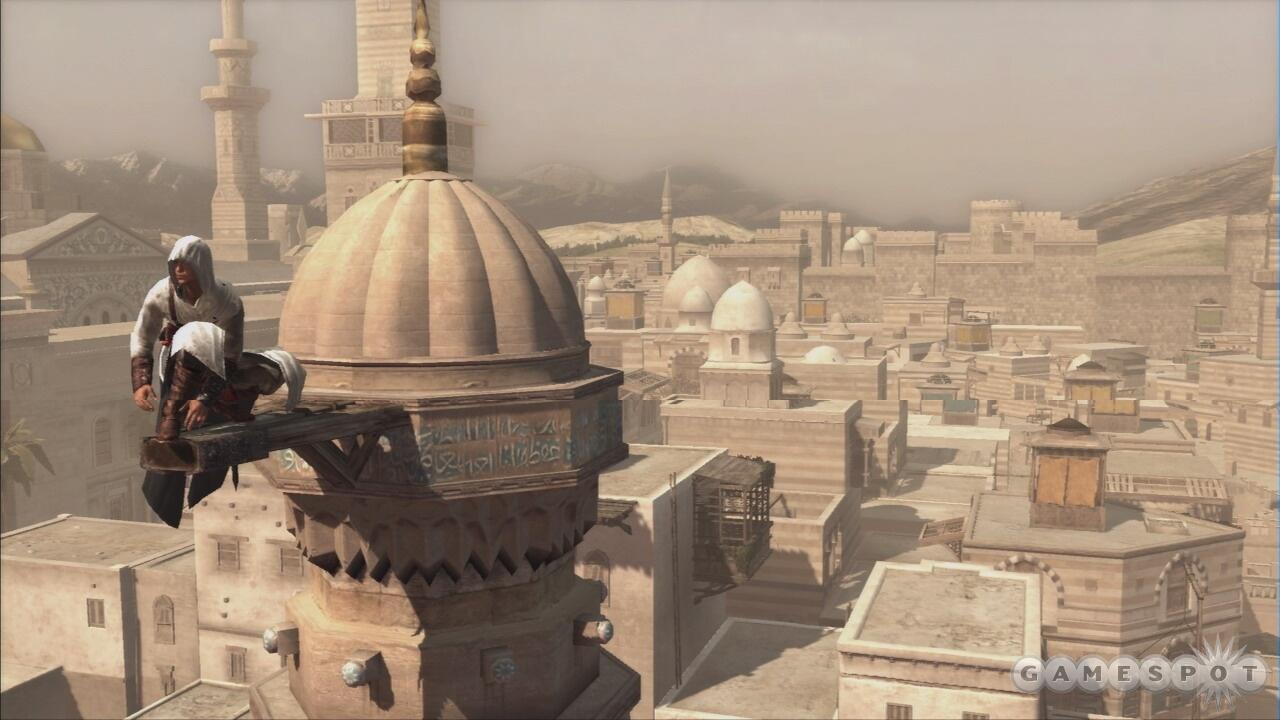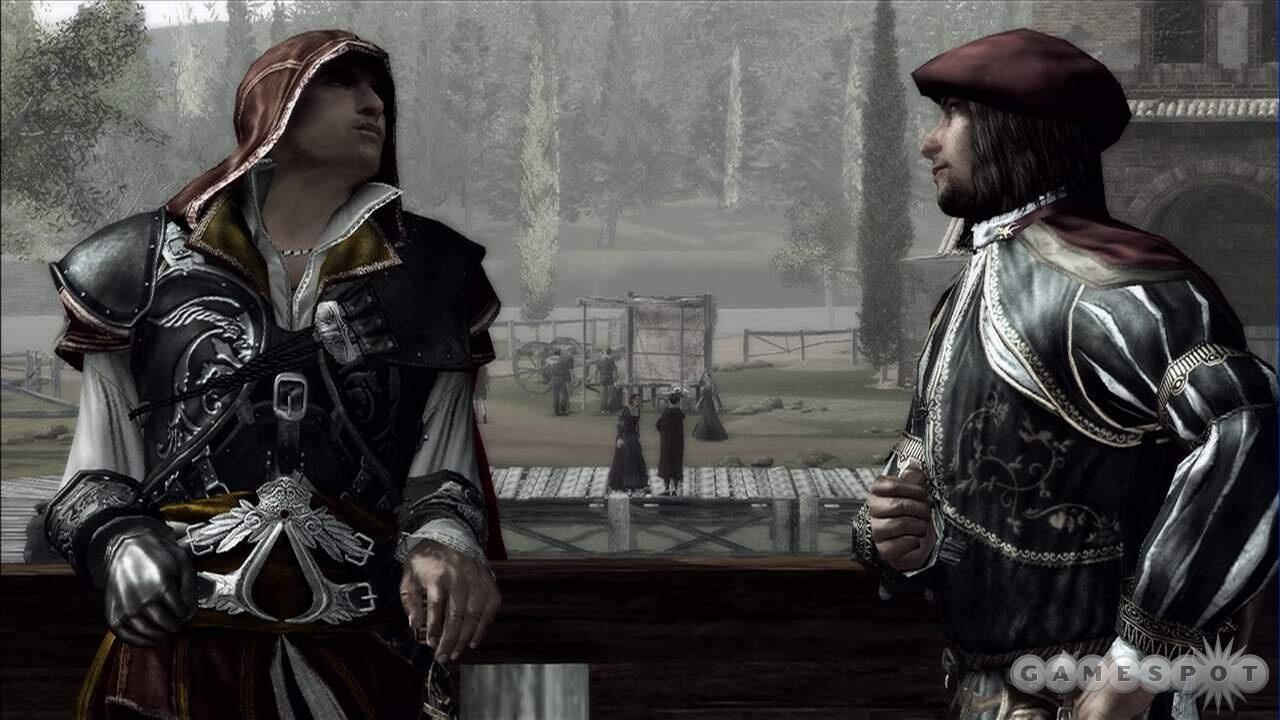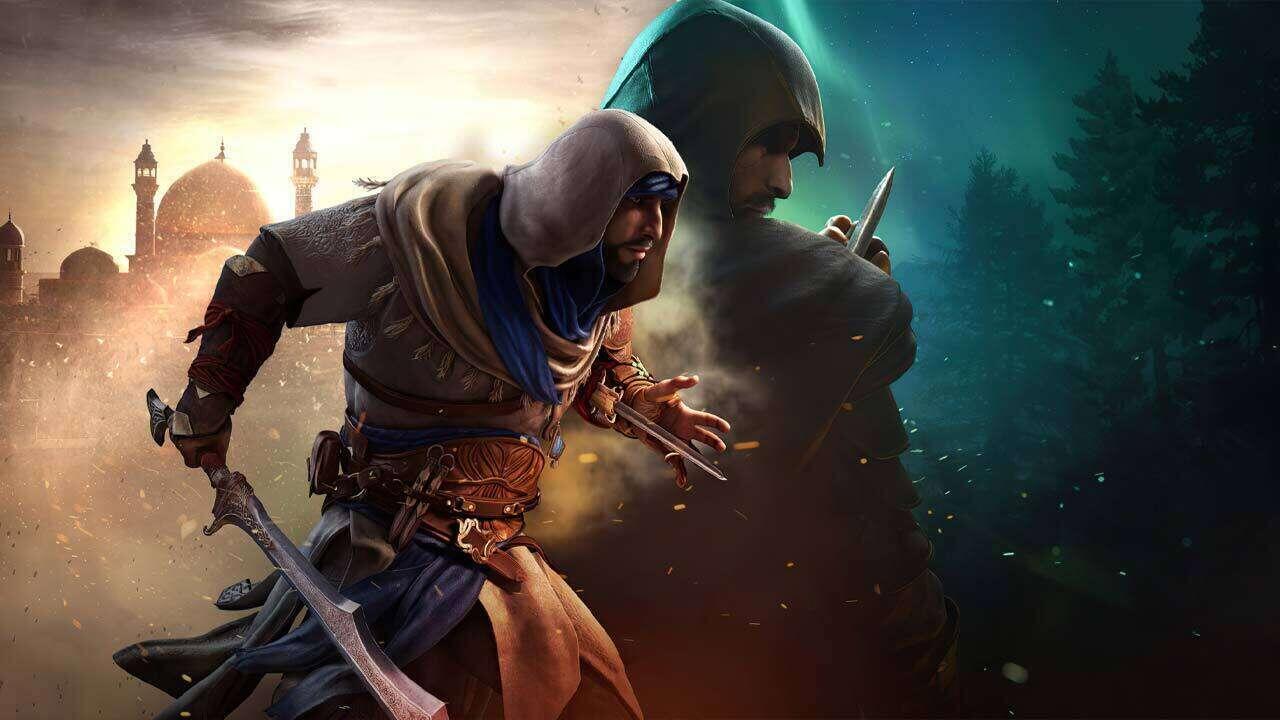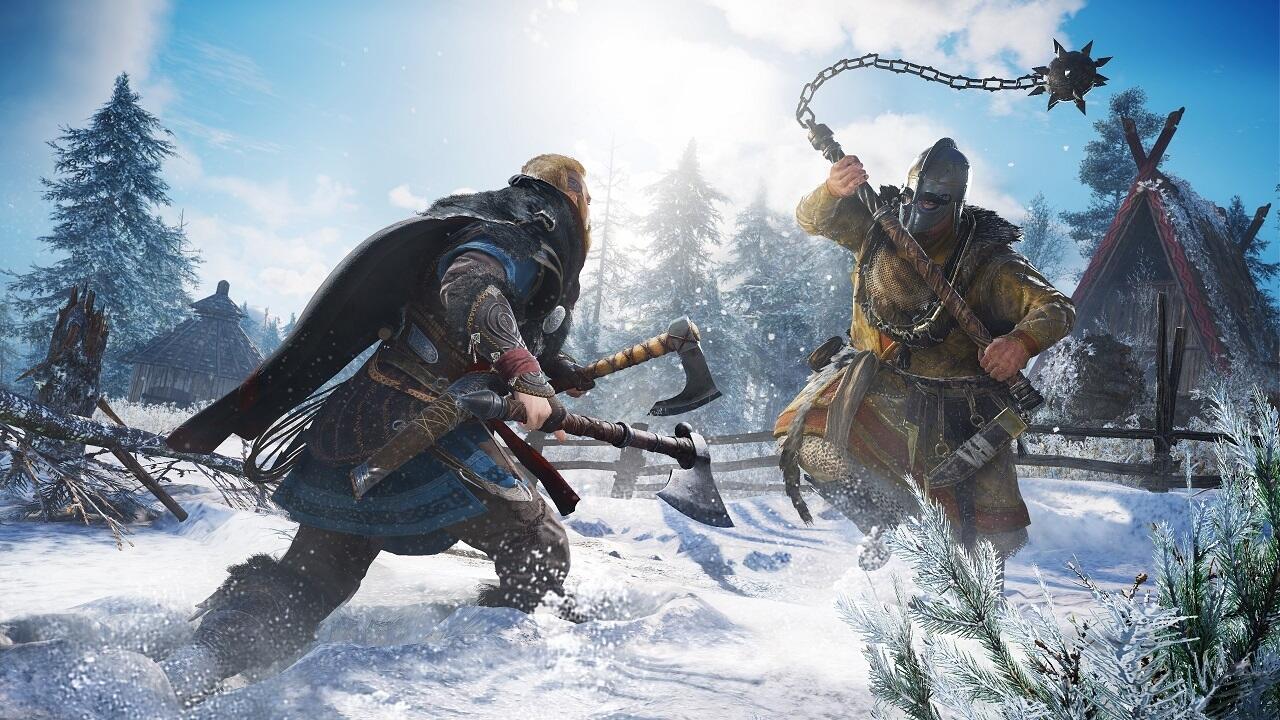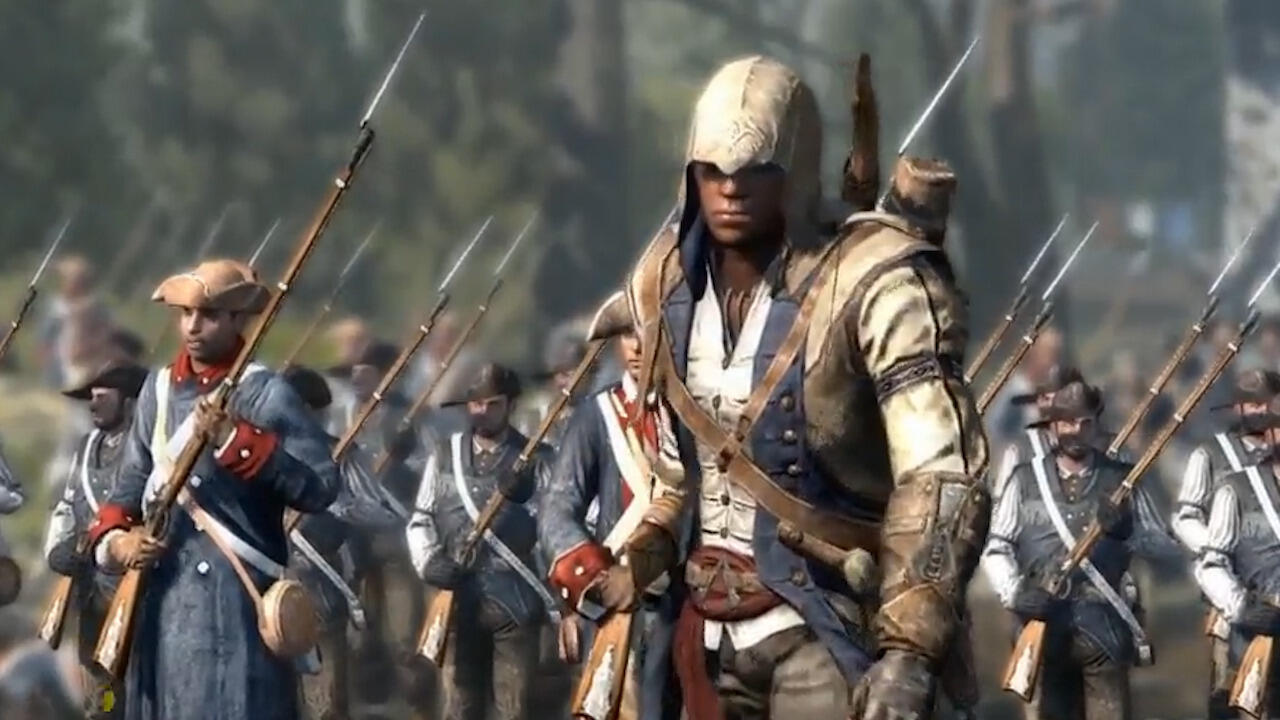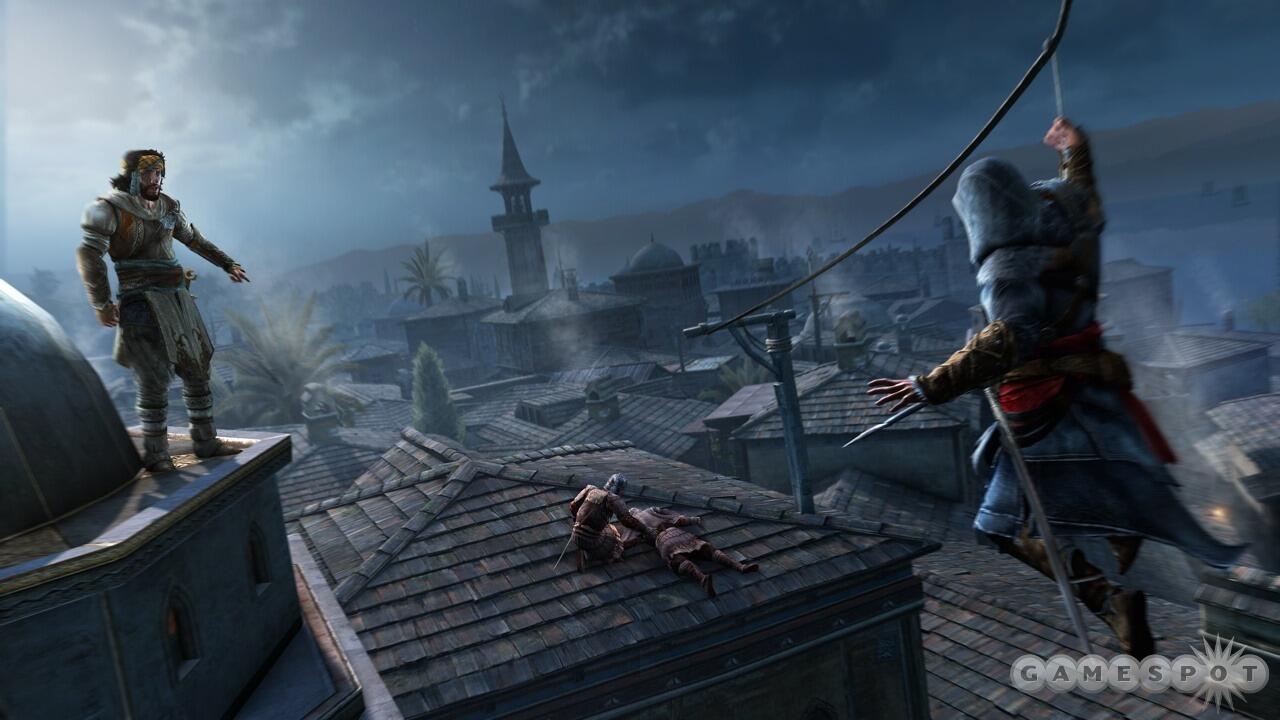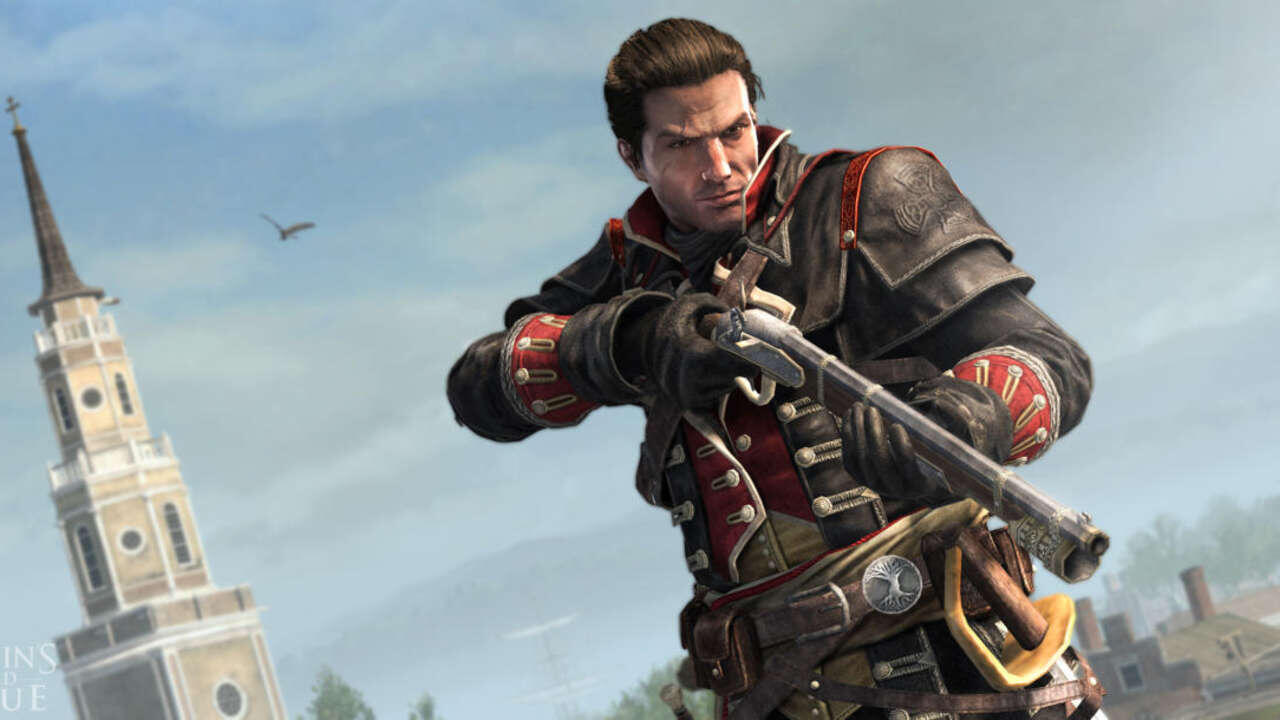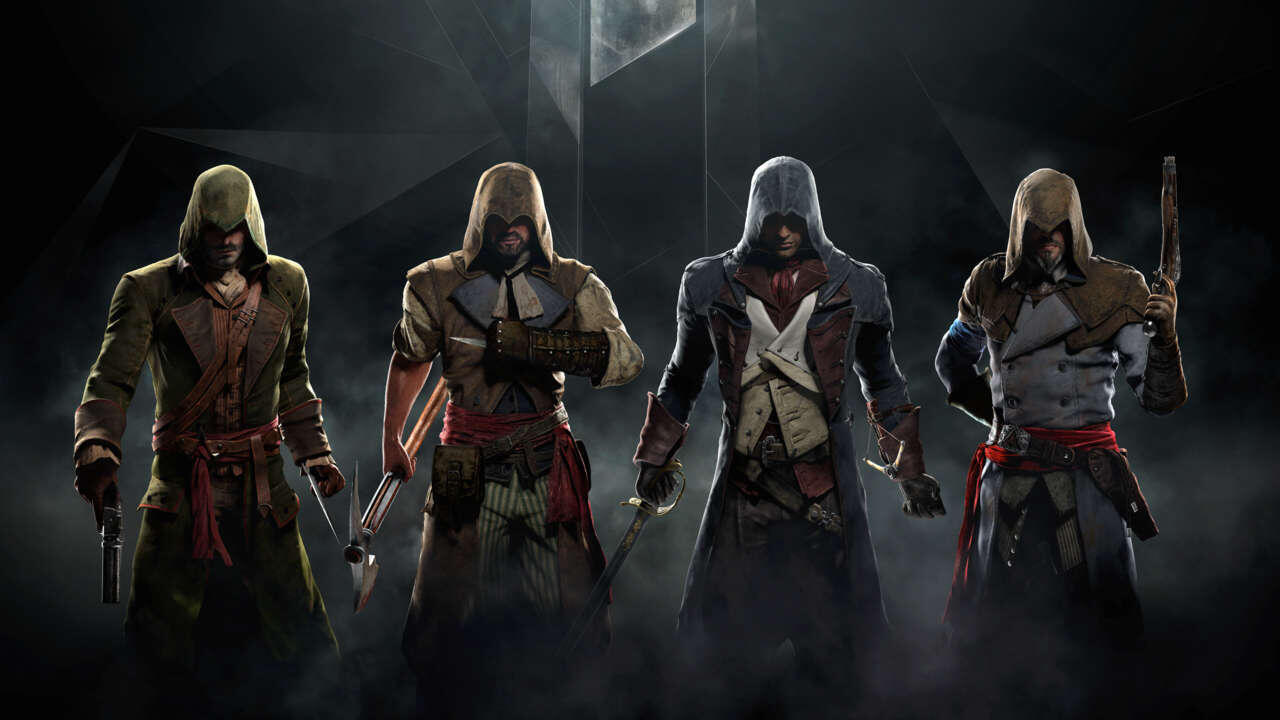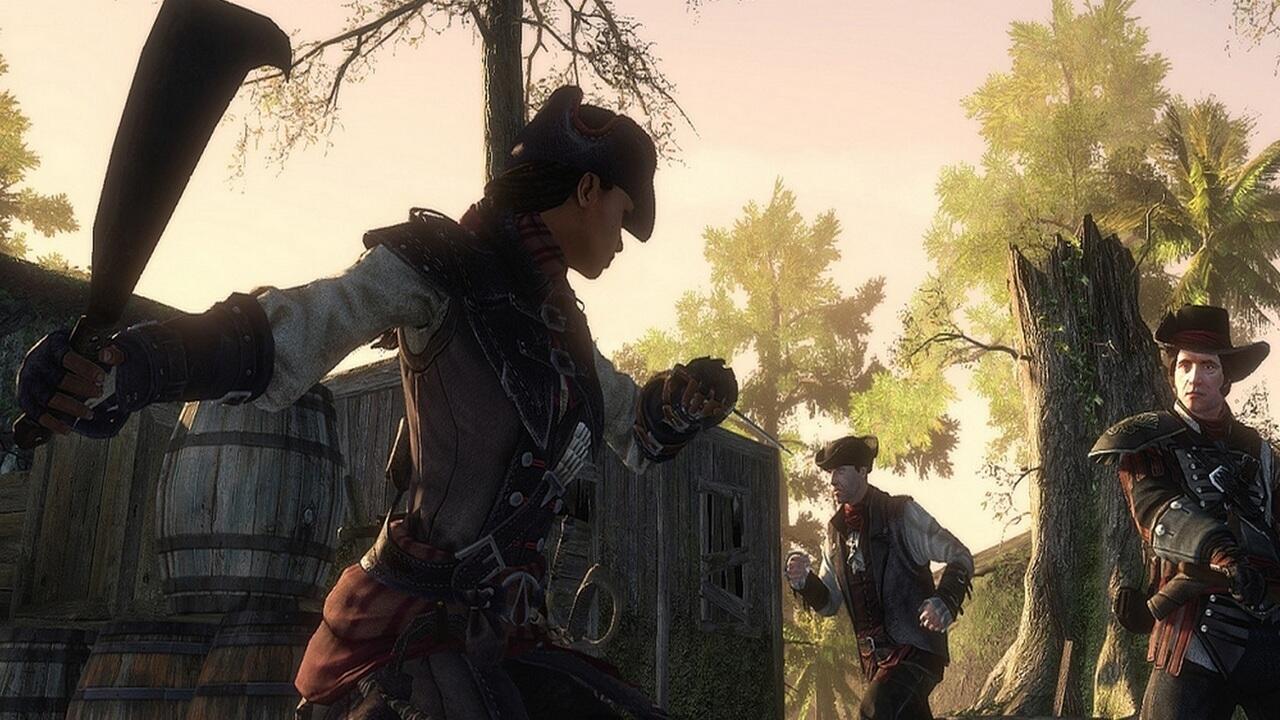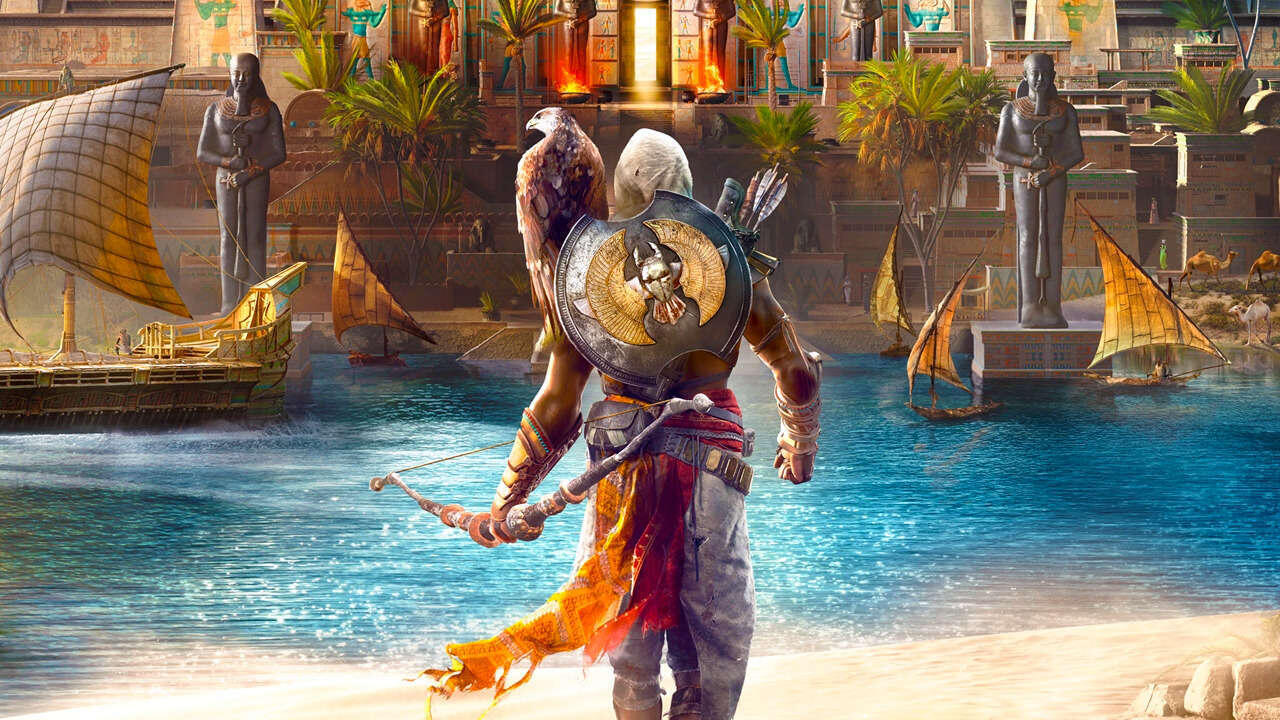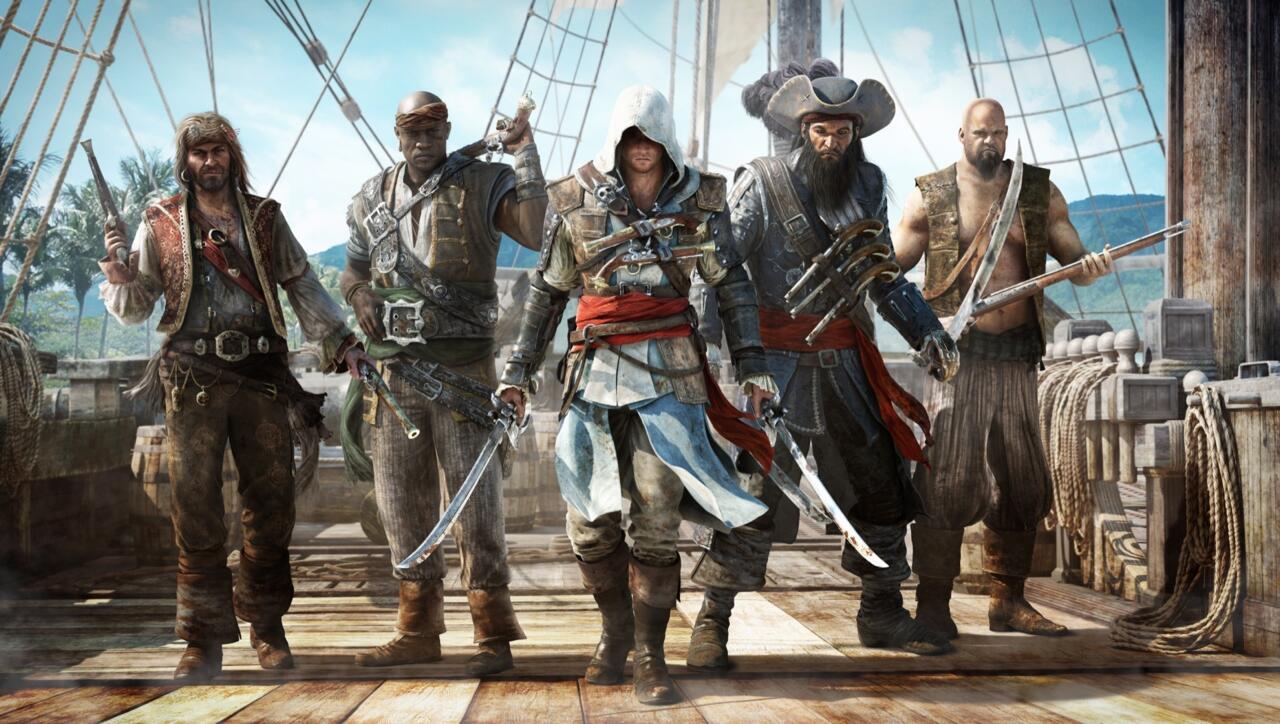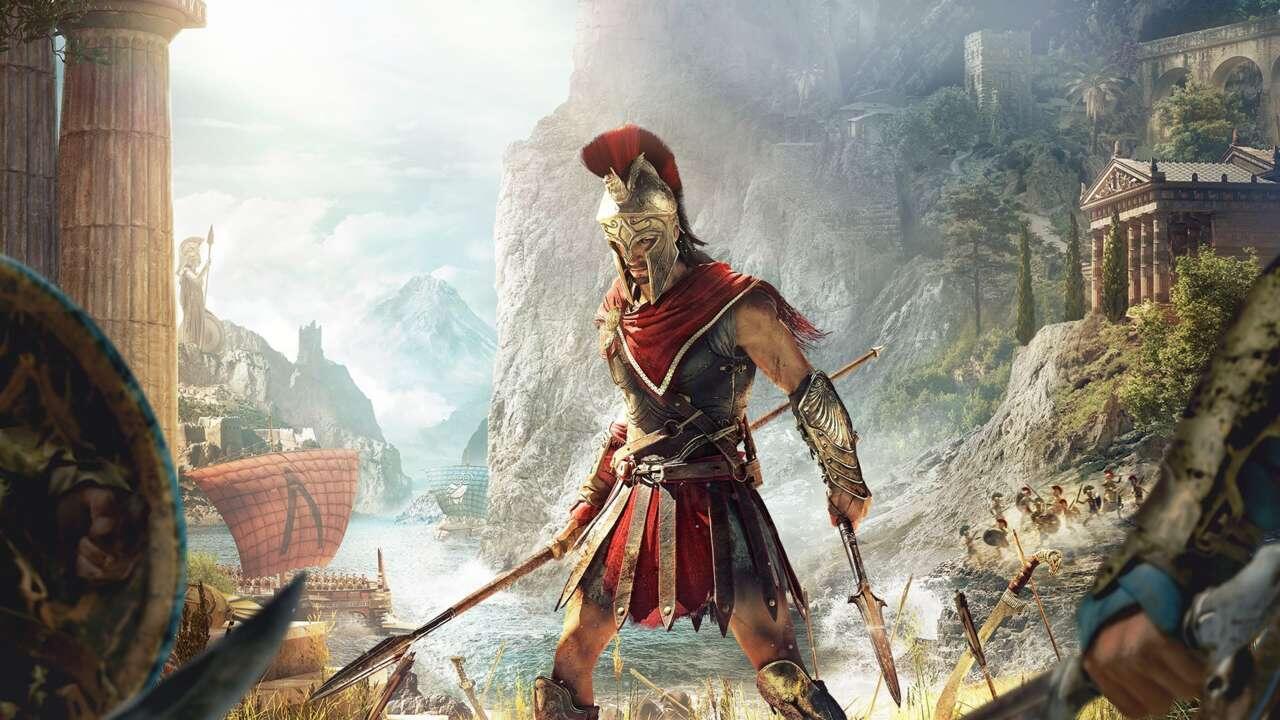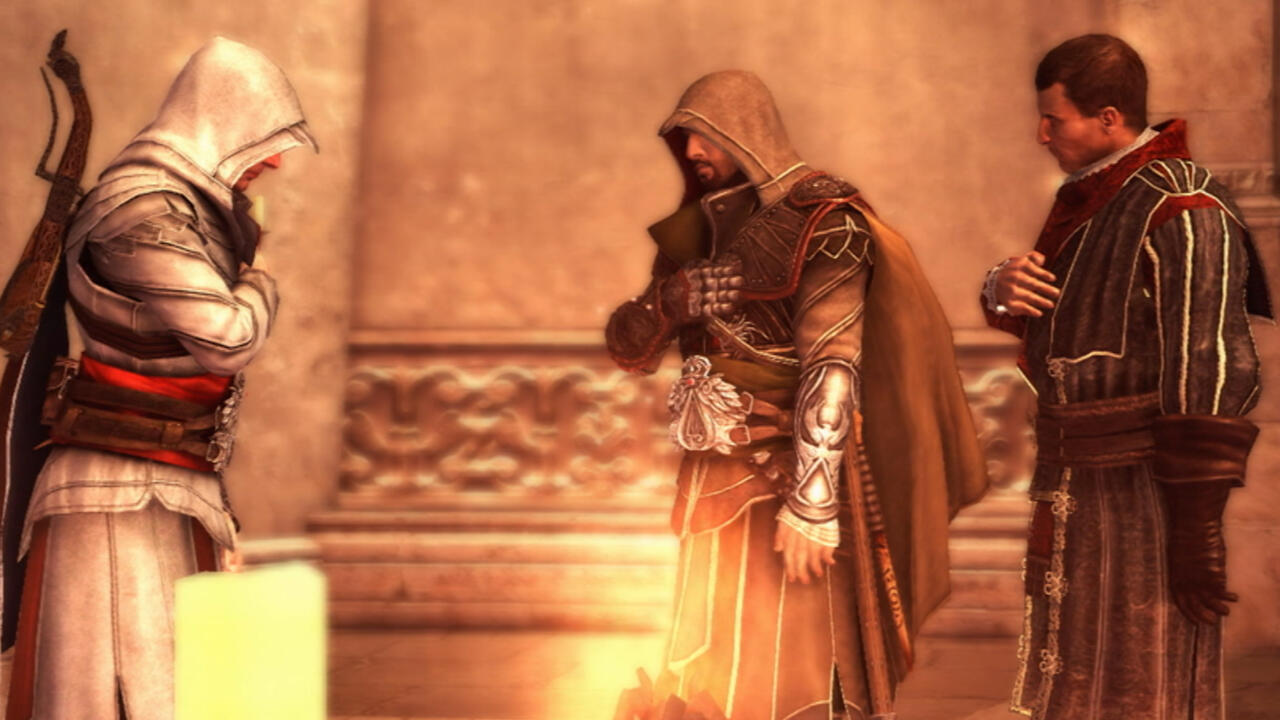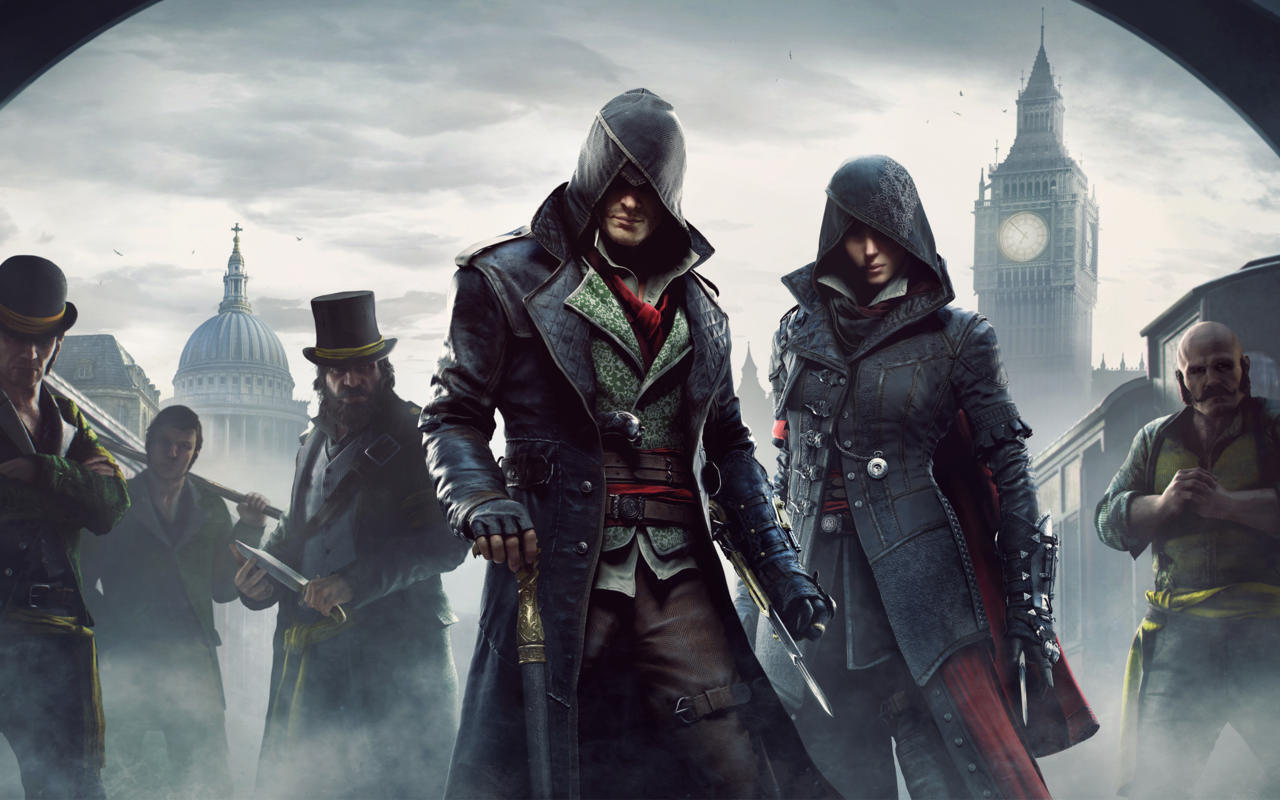Best Assassin's Creed Games: Every Game, Ranked
GameSpot may receive revenue from affiliate and advertising partnerships for sharing this content and from purchases through links.
Assassin's Creed has become one of Ubisoft's biggest and most recognizable franchises. The historical fiction series has let you explore and cut your way through tons of different eras, from the Roman Empire to the French Revolution and now, in its latest installment, the Sengoku period of Japan. During that time it's also repeatedly transformed and reinvented itself, going from very stealth-focused to more traditional action and even expansive open-world RPGs.
Within those various frameworks, some stand tall above the rest. Because of their especially gripping stories, nailing the feeling of being an adept assassin, or some combination of the two, some of the Assassin's Creed games rise to the top. For the purposes of this ranked list, we're only counting the main series games--that is, the numbered entries and major sequels. That means you won't find the side-scrolling Chronicles games, or the myriad mobile spin-offs here. Still, the main Assassin's Creed series includes more than a dozen games at this point, so there's plenty to rank and compare. These are the best Assassin's Creed games of all time.
15. Assassin's Creed
The original Assassin's Creed laid the foundation for the series, but it was also very much a rough sketch. Even at the time, critics cited its repetitive mission structure, and those elements have not aged gracefully. Even still, it established the world of the Assassin-vs.-Templar conflict, boldly presented a Middle-Eastern protagonist at a challenging time in international politics, and pioneered the social-stealth mechanics that went on to define the series.
14. Assassin's Creed II
Widely seen as a vast improvement over the first game, Assassin's Creed II introduced its most famous protagonist: Ezio Auditore da Firenze, a rich Italian playboy who fell into the Assassin's Brotherhood and was instrumental in spreading the organization throughout Italy. This game was an improvement in every way over the first game, polishing the original's foundation and creating a stronger structure for future games. Still, the series has come a long way since then, and it's not easy to go back to.
13. Assassin's Creed Mirage
The most recent Assassin's Creed game promised a return to the series' roots, with more focus on stealth and parkour, and setting itself in Baghdad. And while the stealth gameplay and creative problem-solving did help recall the early days of Assassin's Creed, the story was too weak to stand on its own and was marred by mostly forgettable characters.
12. Assassin's Creed Valhalla
Assassin's Creed Valhalla is probably the game to stray the furthest from the core foundation of the series. Instead of a stealthy member of the Brotherhood, you're a Viking warrior forging alliances with the kingdoms of Anglo-Saxon England. The combat is vicious, and it does tie into and partially conclude the new trilogy that Ubisoft started with Assassin's Creed Origins. But both the story and the sheer volume of gameplay were difficult to penetrate.
11. Assassin's Creed III
The finale of the original Assassin's Creed trilogy took place in colonial America, turning the cultural tourism that the series has become famous for and giving you a front-row seat to the founding of the United States. By putting you into the shoes of Kanien'kehá:ka-born Ratonhnhaké:ton, aka Connor Kenway, the usually venerated founding fathers were regarded with suspicion and skepticism as you attempted to protect your peoples' sovereignty. The setting was less parkour-focused due to the sparse and relatively low buildings, which made it feel more wilderness-focused than prior entries. And while it wrapped up the apocalyptic story that followed modern-day protagonist Desmond Miles, it was a pretty underwhelming end since the conclusion had to act as a springboard for more Assassin's Creed. Importantly, this game was a turning point for the franchise, rewriting the Assassin and Templar conflict to not be so clearly black and white, opening the franchise for storylines where the normally villainous Templars could be portrayed in a more heroic light. It also introduced naval combat, which would go on to feature in many subsequent Assassin's Creed games.
10. Assassin's Creed Revelations
Ezio was such a breakout star that, for a while, he became the face of the franchise with his own trilogy inside the larger numbered trilogy. That trilogy covered Ezio's growing leadership within the Brotherhood, culminating in Revelations, the third installment. By this point, Ezio was older and weathered, with a distinguished salt-and-pepper beard. The story tied Ezio to original protagonist Altair, and took place in the new setting of Constantinople. It sported many of the refinements introduced in the other two Ezio-focused games, but by this point it was starting to get a little old--just like Ezio.
9: Assassin's Creed Rogue
One recurring theme throughout the Assassin's Creed franchise is that the Assassins and Templars are two sides of the same coin--very similar methods and organizations, devoted to opposing ideologies. That idea is front and center in Rogue, which has you playing as a defector from the Assassins who joins the Templar Order. Structurally, it was similar to games that had come before, especially the previous year's, Black Flag. But it also marked a unique cross-generational experiment for Ubisoft. Rather than make one game that could function across two console generations, it simultaneously released two completely different games. Rogue was the last-gen version, which made it more susceptible to criticisms that we had already seen what it has to offer.
8. Assassin's Creed Unity
Unity was the other half of Ubisoft's cross-generational strategy. And if Rogue was a little too familiar for some fans, Unity was more ambitious--and buggy. Set during the French Revolution, Unity emphasized co-op play, though each player would appear as their own customized version of the game's protagonist, Arno. And it took big swings with a revised combat system inspired by fencing, expanded interior spaces, big changes to the free-running system, and new "Black Box" missions that afforded you a great deal of freedom in how you approached your assassination target. Though it immediately became infamous for its off-putting bugs, the game has since been patched to the point that the real underlying game can shine through.
7. Assassin's Creed Liberation
The companion game to Assassin's Creed 3 took a similar approach by starring a member of an underrepresented group, this time an Afro-French woman in New Orleans immediately after the French and Indian War. The series' first female protagonist, Aveline was a member of the local nobility but had also dedicated herself to breaking the oppression of slaves. To illustrate this, the game implemented a disguise system that had never been used before or since in the series. Aveline could pose as a member of the aristocracy, an assassin, or slave--each with distinct abilities and access to different areas. Originally appearing on the PlayStation Vita, it has since been ported to PC, Xbox and PlayStation consoles, and Switch.
6. Assassin's Creed Shadows
Similar to Brotherhood, Black Flag, and Origins, Assassin's Creed Shadows feels like a turning point for the series. Having long since abandoned social stealth (and stealth in general, save for a brief return in Mirage), Assassin's Creed has transformed into an action franchise with RPG-like elements. Shadows reintroduces stealth elements back into Assassin's Creed and implements mechanics never-before-seen in this franchise, like going prone and knocking out light sources to hide in the dark, which has made for one of the best-feeling Assassin's Creed games in a while. Plus, it's right up there with Odyssey in terms of visuals; this is a stunning game to look at, and 16th-century Japan comes to life with looping seasons and what feels like Assassin's Creed's strongest soundtrack to date.
It's far from perfect--the choice to go with two protagonists and separate the story into self-contained investigations muddies the overall narrative flow and makes for an unrewarding conclusion. Plus, one of those two protagonists is far and away a less enjoyable way to play--Yasuke feels like an experiment gone wrong that Ubisoft Quebec should have done away with early into development. Shadows does a lot to improve what Assassin's Creed has become, but its drawbacks do too much to keep it from being in the top five.
5. Assassin's Creed Origins
After a decade of annual releases, Ubisoft took some time off to reset and rethink its approach to the series. The result was Assassin's Creed Origins, which went to an earlier time period than any other game at that point, and included a major overhaul of its systems. This version of Assassin's Creed was more akin to the Witcher, as an open-world RPG with equipment and huge areas that are largely flat, removing social stealth and parkour as central pillars of the experience. The story takes place in ancient Egypt, and follows Bayek in his quest to avenge his son. In the process he gets caught up in the complex machinations of world events, and founds the Hidden Ones--the precursor to the Assassins. Origins showed a new path for Assassin's Creed, with a more expansive scope and the introduction of a new modern-day deuteragonist, Layla Hassan.
4. Assassin's Creed IV: Black Flag
Widely considered to be a turning point for the series, Assassin's Creed IV: Black Flag is when Ubisoft started to stray from the traditional Assassin storyline and get more experimental with cultural tourism. Instead of the latest in a noble line of trained killers, you're a pirate who mostly stumbles into the Assassin-Templar intrigue. This was mostly to facilitate the new ship combat gameplay that was a vast improvement on the systems introduced in Assassin's Creed III, and went on to be the basis for how naval combat worked in Rogue, Origins, and Odyssey. But it was the swashbuckling Edward Kenway who became a fan-favorite protagonist, arguably second only to Ezio at the time.
3. Assassin's Creed Odyssey
Like Assassin's Creed II before it, Odyssey took everything that the previous game had defined and improved on it. This was the second game in the gameplay-rebooted series, following Origins and taking the timeline back even further. That makes this the chronological first game in the series, before the Assassins were even the Hidden Ones. Taking place during the Peloponnesian War between Athens and Sparta, Odyssey establishes some deep mythos that ties into the precursor race storyline that has underscored many of the series' biggest reveals. And like Ezio and Edward, it had a breakout star in Kassandra, the better (and canonical) half of the brother-sister pair who could be selected as your playable character. Her wit and personality makes Kassandra one of Assassin's Creed's best protagonists--perhaps the best. Odyssey was also the first game to transform the hunt of the bad guys into a detective trying to solve a mystery, giving you a huge board of targets you had to uncover the identity of before hunting them down, collapsing the organization piece by piece. Valhalla (and to a similar extent, Mirage) use this system too, but Odyssey did it the best.
2. Assassin's Creed Brotherhood
Assassin's Creed II improved upon the formula of the first game, but Assassin's Creed Brotherhood perfected it. The second game of the Ezio trilogy, this one sees him as a more experienced leader, taking the fight to the Borgia family to establish a foothold for the Assassins in Rome. Ezio got a host of new gadgets and combat abilities in this, and it encapsulated the feeling of leading a guild of assassins through two new key elements: a home base at Monteriggioni which held its own secrets to explore, and the ability to recruit new assassins and send them off on missions of their own. This was the game that established the formula forbalancing the traditional fighting and stealth mechanics alongside light sim elements, which future entries attempted to match Its story, albeit a bit too short and sometimes rushed, is also exceptionally good.
1. Assassin's Creed Syndicate
Though it's often derided as just another Assassin's Creed when the series was getting long in the tooth--just before Ubisoft pulled back for a major rethink with Origins--for our money, Syndicate is the best of the bunch. Set in Industrial Revolution London, you took control of siblings Jacob and Evie Frye as they started a street gang to take on rivals run by the Templars. The relatively recent setting gave it lots of room to explore resonant themes, and combat was pitch-perfect after years of polishing. Plus, the formula for the Black Box missions introduced in Unity shone in the sheer variety of levels Syndicate offered, ranging from a theater to a bank. There was even an incredible DLC where you could play as Jack the Ripper and the modern day storyline--for the first and last time--wasn't all that intrusive and proved interesting when it did happen to pop up, offering fans a morsel of what a modern-day Assassin's Creed could look like if Ubisoft would just give it to us. This is the classic style of Assassin's Creed as its absolute peak.

